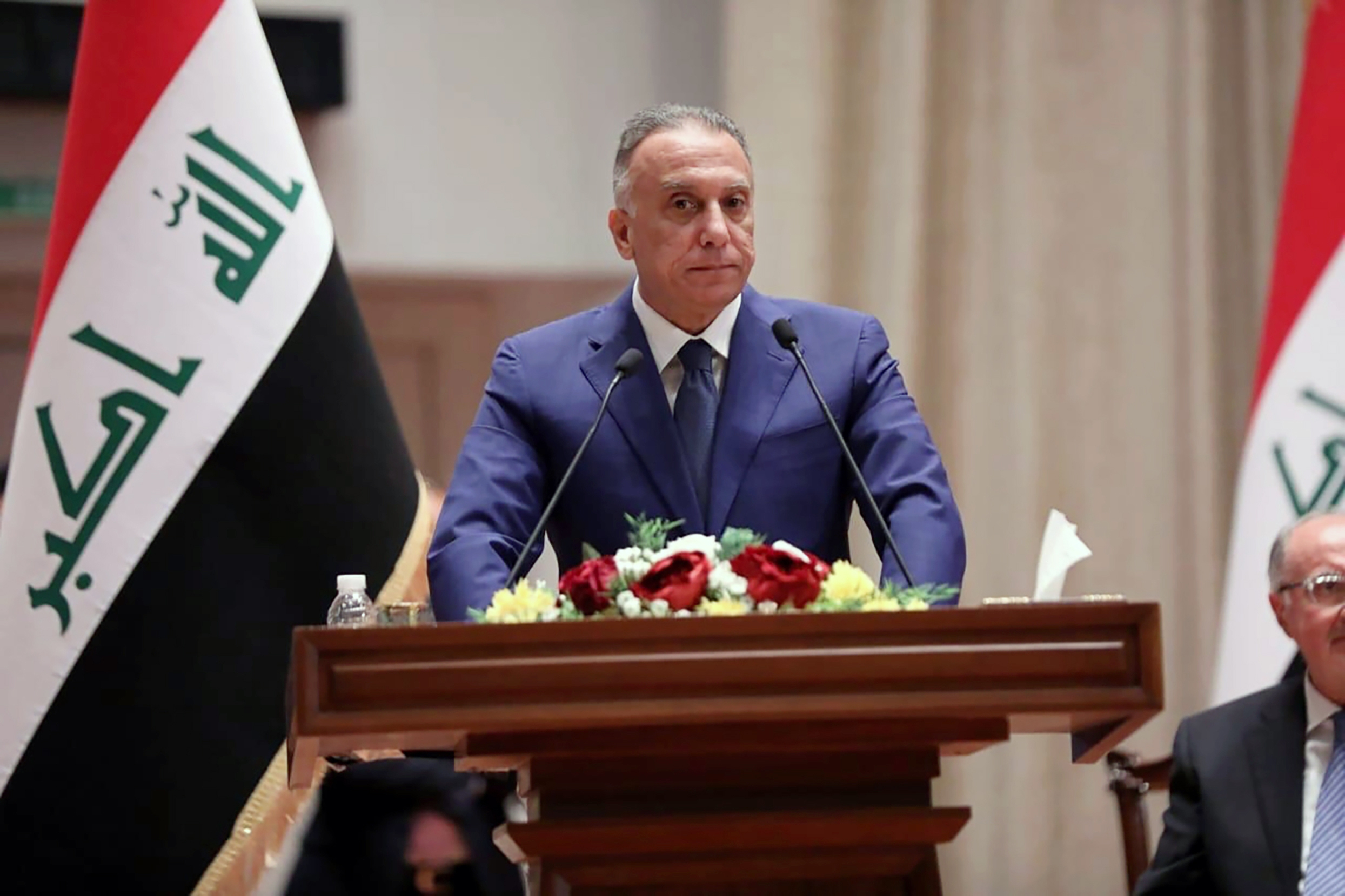From the moment Iraq’s new Prime minister stepped off the Iraqi Army MI-17 helicopter for a tour of Mosul, the city most damaged by the Islamic State’s takeover in 2014, he plunged into a landscape of loss.
Everywhere there were wrecked buildings, communities shredded, and the shadow of “the disappeared” — people taken by the Islamic State and never found, and those killed or imprisoned by Iraqi forces or militias, whose families never learned what happened to them.
Twelve hours and scores of conversations later, Prime Minister Mustafa Kadhimi returned to Baghdad, still looking crisp in his light shirt and dark jacket, but visibly trying to organise his thoughts.
“I saw the distress of the constituent groups and the displaced,” he said. “People are bearing the burden of something they did not cause.”
In Mosul, the country’s third-largest city, the “constituent groups” are a cross-section of the country — Sunni Arabs and Shia Arabs, Kurds and Christians, Yazidis and Turkmen. And everyone feels something was stolen from them, first when IS took over, and then again in the war to push the militants out.
Kadhimi is in many ways a western-style leader. He has a message for every event, and he stayed on schedule through a 12-hour day.
But nothing could prepare Kadhimi, 54, for the anger and grief that people called out to him every chance they got.
Among his first stops were the Mosul Museum, its collection hacked to pieces by IS, and the Al Nuri Grand Mosque, a renowned Iraqi landmark with an intricately carved leaning minaret.
The wind blows through the lower part of the mosque now, which was badly damaged in the fighting. During the Islamic State takeover of Syria and Iraq, the militant leader Abu Bakr al Baghdadi declared himself the group’s caliph from its pulpit.
If ever there were a place where the stones have voices, it is Mosul. The destruction is almost audible. Whole blocks are piles of debris, chunks of concrete are massed three and four stories high, and clinging to them are shacks, tacked together out of scrap metal and canvas. This is what passes for homes today in Mosul.
The Prime Minister only glimpsed this chaos as he swept through the city in a motorcade of cars and army vehicles, tearing down streets emptied of people to ensure his safety.
But in his meetings with local residents, he got a true sense of the magnitude of the problems facing his new administration.
After meeting with the leaders of the security forces, Kadhimi held a forum in the provincial governorate building. First the Sunni sheikhs filed in, dressed for the occasion. Their long tribal robes and gauze dusters, trimmed with golden or black braid, brushed the floor, their checked head scarves were held in place by traditional black agals.
“In the name of the Council of Nineveh Tribes, we greet you,” said Sheikh Saleh Al-Khalidi.
Then he listed Mosul’s needs: new bridges to replace the ones IS destroyed; compensation for homeowners and businesses whose properties were demolished or badly damaged in the fight to reclaim the city; resumption of repairs on the Tomb of Jonah, the biblical figure said to have been regurgitated near Mosul after being swallowed by a whale; reconstruction of the hospitals and clinics.
And — oh, yes — all the mosques and churches damaged by IS needed to be rebuilt.
The Prime Minister listened, and then reminded people of the realities.
“We are witnessing the worst economic situation since the formation of the Iraqi state,” he said more than once throughout the day.
“We have solely relied on oil for our revenue,” he said. “Ninety-four per cent of our revenue comes from oil. So because of that there is no private sector.”
The Prime Minister recited his own list of needs: money, which the new government does not have; a reconstruction ethos that is free of corruption, which will take time to put in place; and reconciliation between tribes, sects, faiths and ethnicities, which will take effort from everyone.
New York Times News Service











